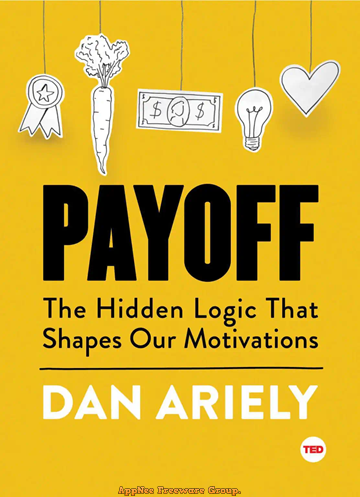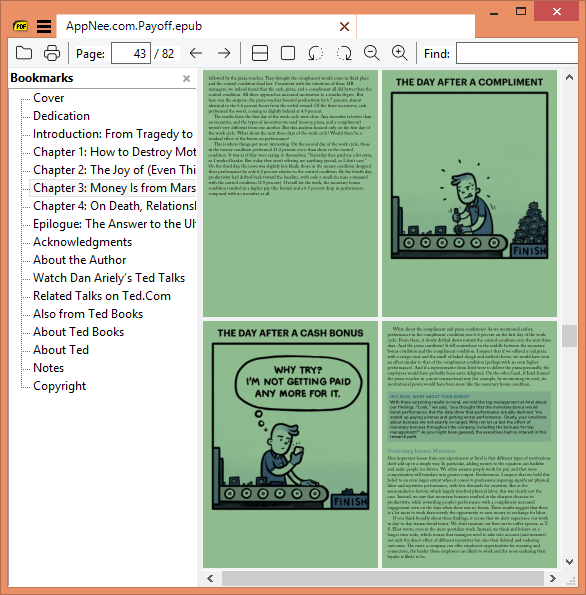| Ⅰ | This article along with all titles and tags are the original content of AppNee. All rights reserved. To repost or reproduce, you must add an explicit footnote along with the URL to this article! |
| Ⅱ | Any manual or automated whole-website collecting/crawling behaviors are strictly prohibited. |
| Ⅲ | Any resources shared on AppNee are limited to personal study and research only, any form of commercial behaviors are strictly prohibited. Otherwise, you may receive a variety of copyright complaints and have to deal with them by yourself. |
| Ⅳ | Before using (especially downloading) any resources shared by AppNee, please first go to read our F.A.Q. page more or less. Otherwise, please bear all the consequences by yourself. |
| This work is licensed under a Creative Commons Attribution-NonCommercial-ShareAlike 4.0 International License. |

Every day, we put in considerable effort to inspire ourselves, those around us, and the individuals who work with or conduct business alongside us. Therefore, much of our actions can be categorized as “motivators”. Our role as motivators is multifaceted, whether in a boardroom or a living room. The more we attempt to encourage our partners, children, friends, and coworkers, the more apparent it becomes that the narrative surrounding motivation is far more complex and captivating than we previously believed.
In Payoff, the true essence of motivation is examined, shedding light on our limited understanding of its mechanisms and how we can close this gap. Through diverse studies, from Intel to a kindergarten setting, the author delves into the core of motivation – how it functions and how we can leverage this insight to make significant decisions in our lives. Throughout this exploration, he raises thought-provoking questions such as: Can providing bonuses to employees actually decrease productivity? Why is trust essential for effective motivation? What are our misconceptions regarding the value of our work? How does the awareness of our own mortality influence our motivation?
The author argues that while traditional economic theory suggests that people are primarily motivated by financial incentives, the reality is much more complex. His research shows that non-monetary rewards, such as recognition, meaningful work, and a sense of progress, can be more effective in motivating people in the long term. He uses a variety of experiments and real-world examples to illustrate how understanding the true drivers of motivation can lead to better outcomes for individuals and organizations alike.
One of the key insights in this book is the importance of meaning and personal connection in the workplace. The author demonstrates that when people feel their work is meaningful, they are more likely to put in effort, irrespective of the financial rewards. This is particularly evident in his discussion of the “IKEA effect,” which describes how people value things they have partially created or assembled much more highly than similar products. This principle can be applied to the workplace by involving employees in decision-making processes and allowing them to see the impact of their work, thereby fostering a sense of ownership and commitment.
Another significant aspect of his “payoff” concept is the role of immediate versus delayed rewards. He explains that immediate rewards, even if smaller, are often more motivating than larger, delayed rewards. This has important implications for how goals are structured and incentives are designed. By breaking down large tasks into smaller, manageable pieces with immediate feedback and recognition, individuals are more likely to stay motivated and complete their objectives.
The author also explores the detrimental effects of excessive incentives, highlighting that very high pay can lead to a narrow focus on financial gain at the expense of ethical considerations and overall well-being. He suggests that companies and policymakers should strive to create environments where financial incentives are balanced with other forms of reward and recognition that align with long-term satisfaction and societal values.
In conclusion, this book on “payoff” challenges conventional wisdom about motivation and incentives. By emphasizing the importance of meaning, personal involvement, immediate rewards, and a balance between monetary and non-monetary incentives, the author provides valuable insights for enhancing motivation in various aspects of life. Whether in the workplace, education, or personal endeavors, understanding and applying the hidden logic that shapes our motivations can lead to more effective and fulfilling outcomes.

// Table Of Contents //
- Introduction: From Tragedy to Meaning and Motivation
- Chapter 1: How to Destroy Motivation, or: Work as a Prison Movie
- Chapter 2: The Joy of (Even Thinking That We Are) Making Something
- Chapter 3: Money Is from Mars, Pizza Is from Venus, and Compliments Are from Jupiter
- Chapter 4: On Death, Relationships, and Meaning
- Epilogue: The Answer to the Ultimate Question
// Download URLs //
| Format | Download | Size |
 |
1.72 MB | |
| EPUB |  |
9.45 MB |
(Homepage)
| If some download link is missing, and you do need it, just please send an email (along with post link and missing link) to remind us to reupload the missing file for you. And, give us some time to respond. | |
| If there is a password for an archive, it should be "appnee.com". | |
| Most of the reserved downloads (including the 32-bit version) can be requested to reupload via email. |